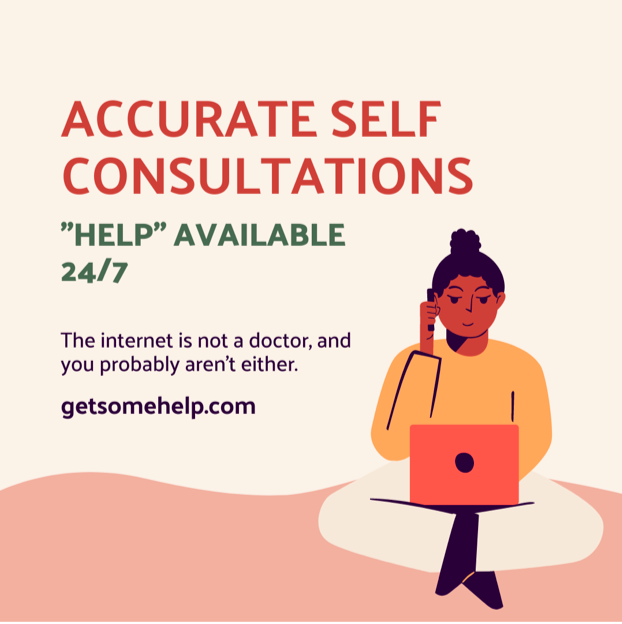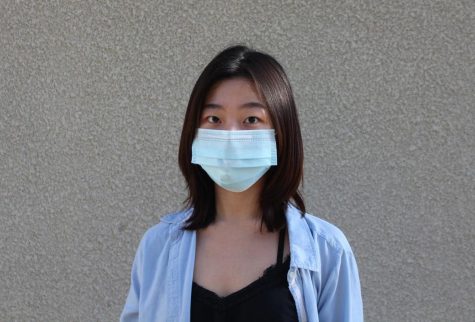Congratulations, the internet says you’ve got “cardiac arrest”
November 30, 2021
Self diagnosis: I feel like we’ve all done it before. You wake up feeling under-the-weather, with an ominous aching in your bones and a crick in your neck. Gingerly, you type in these symptoms into the Google search bar and my condolences, you now have amyloidosis.
Jokes aside, self-diagnosis is a social phenomenon that is happening more often as the power of the Internet grows, and especially as mental health is becoming a more transparent issue in society.
Self diagnosis is defined by the Highland Springs Clinic as “the process of diagnosing or identifying a medical condition in yourself. Majority of the time, people google a symptom or medical sign and try to figure out if they have a condition, this is self diagnosing.”
Many people with access to the Internet use it to check their symptoms, which isn’t by itself harmful, but this can lead to faulty diagnoses with heavy consequences.
The “diagnosis” of a condition too major could give you unwarranted stress, and dramatically throw off the course of any treatment plan, ultimately leaving you with more harm done than good. A minor one could underplay the problems you have, preventing you from getting the help you need.
Mrs. Povletich, an AP Psychology teacher at West Ranch, expressed, “I think students are so quick to jump onto the first thing they see in a search, and that worries me a little bit, because you really need to be critical in any research that you do, and there’s a lot of information on the Internet that can lead you astray, that can over-exaggerate issues, or underplay different issues. I think it takes a really critical eye to self diagnose, but it can help you at least have an idea of what you might be feeling, and hopefully know where to go to get more resources.”
The problem is that the vast majority of people may not possess such a “critical eye.”
Psychology Today reported that “mental illness is largely diagnosed through checklists of self-reported symptoms. For this reason, mental illnesses, including depression, are sometimes misdiagnosed. According to a 2012 article in Current Psychiatry, 26 to 45 percent of patients referred for “depression” did not meet diagnostic criteria for a depressive illness.”
Trained medical professionals take into consideration many physical and mental factors into consideration when evaluating the condition of a patient.
Mrs. Phillips, the Wellness Center Coordinator at West Ranch, advised that “We don’t want to self diagnose. We want to gather the information, which is what people are doing to get to the self-diagnosing part, but don’t make any decisions. A professional needs to do that.”
There are so many nuances and minor factors that affect a diagnosis, and the common person simply doesn’t have the skill or knowledge to be able to deduce their state correctly.
This is not to say that every instance of self-diagnosis will result in a false conclusion. Your feelings are valid, and are worth getting checked professionally.
Local pediatrician Dr. Sunanda Vadapalli said, “[The validity of self-diagnosis] varies depending on the issue. I would say a lot of anxiety and depression tend to be fairly accurate, but some other medical issues are not.”
In most cases, the Internet can be helpful in finding the general classification of your ailment.
Mrs. Povletich advised, “I think doing research and looking for an answer for your questions is never a bad thing, but in the big picture, for getting help, I would always recommend a specialist.”
It’s widely known that self diagnoses are not the most reliable for identifying illnesses or treating oneself. So, why do people still do it?
“We are all interested in getting as much information as we can about anything, so we can ward off issues and get the help that we need. There is so much information on the Internet, so it’s easy to look at it and go, ‘Yep, that is me’, and sometimes it is, but a lot of times it’s part of a bigger issue, or it’s a smaller part of a bigger thing that’s happening,” mused Mrs. Phillips. “Mainly, it’s just easy and people are reflective now. They want to feel better, and they want to be their best, so let’s ward off whatever we can and get help sooner than later, trying to avoid future issues and bigger challenges.”
A lack of resources could also be a contributing factor to why many resort to self-diagnosis. For instance, the American healthcare system is notorious for being expensive, which hinders many from receiving proper treatment.
A 2020 article published by The Guardian states that “25% of Americans say they or a family member have delayed medical treatment for a serious illness due to the costs of care, and an additional 8% report delaying medical treatment for less serious illnesses. A study conducted by the American Cancer Society in May 2019 found 56% of adults in America report having at least one medical financial hardship, and researchers warned the problem is likely to worsen unless action is taken. High healthcare costs are causing Americans to get sicker from delaying, avoiding, or stopping medical treatment.”
Millions of Americans skip receiving important treatment for physical problems, and even more so for mental problems, which tend to be less obvious and dismissed as less critical by some.
Rarely, but surely, some people misgauge their symptoms and diagnose themselves with an ailment more severe than what they actually have in order to comfort themselves with the knowledge and surety that they have a condition with which to identify.
We live in an era where there are multitudes of specific terms to categorize and label just about anything a person may be, from personality to appearance to beliefs.
Mrs. Phillips remarked, “Words like depression and anxiety are thrown around in a really big category, which is on one hand, good, because people are talking about it. On the other hand, again, related to self diagnosis, is that it can cause people to act in ways that will not necessarily help them. It might not be depression, it might be sadness. Because we don’t go from sadness to depression, it’s just, everything is depression. Sometimes you’re just sad and that’s ok, and you work through that similarly to depression. It’s just not as grandiose of a topic, a name, or label.”
If you are feeling in need of emotional support or professional help, please reach out to national help centers or local specialists.
Dr. Vadapalli recommended that “If people are truly concerned about their health issues, they should try to find out what free services are available to them. Diagnosing themselves can be harmful in some cases. But the other problem that arises is self treatment–that’s what we see happening more often nowadays. People are treating themselves and not using proper science to come up with treatment plans. Instead, they often rely on advice from friends or social media.”
Please don’t self-diagnose yourself or self-medicate; that is dangerous.
Mrs. Povletich expressed, “I would always personally support finding resources and professionals to help. There is a lot of information out there, but when it comes to mental health, it always helps to have a real person to talk to and even though access to healthcare is a challenge, there’s a lot of free resources out there that don’t require health insurance. You just have to do some searching and know who to talk to, and school has a lot of information about it. If you see somebody struggling, there are people to help them. Doing research and looking for an answer for your questions is never a bad thing, but in the big picture, I would always recommend getting help from a specialist, and there are many on campus.”
Pay a visit to the Wildcat Wellness Center, or reach out to the school counselor for immediate consultation if not referral for further resources. Help is available, should you want it, and our community is more than happy to provide support in living your best life.
Here are some national resources for easy access, all available 24 hours a day.
National Suicide Prevention Lifeline: Call 1-800-273-TALK (8255)
Crisis Text Line: Text “HELLO” to 741741
Disaster Distress Helpline: Call or text 1-800-985-5990


